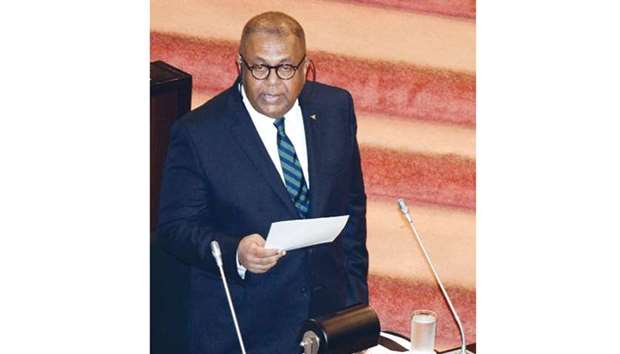The Sri Lankan finance ministry has announced a programme to encourage former combatants to find jobs and fund private companies who recruit them.
The programme due to come into effect next year was included in the country’s annual budget, which was the subject of parliamentary debate starting yesterday.
Under the programme the government will provide facilities for former rebels to obtain training and certificates in fields of technical education, enabling them to obtain jobs in line with their skills.
The facility will be made available to persons whose education was disrupted due to the 26-year conflict in the former war-torn north and eastern provinces in the country.
The move comes after studies found out that most of about 12,600 rehabilitated former combatants had no formal education despite possessing skills.
The state will fund private sector companies who register at least five former combatants for jobs by paying 50% of their salaries to a maximum of Rs10,000 ($65) per month for a year.
The programmes are aimed at reintegrating former combatants into the mainstream as most of them still remain without employment eight years after the end of the conflict.
The government has also announced plans to replace all state-owned vehicles with electric or hybrid models by 2025, a move that will be extended to private vehicles by 2040.
Finance Minister Mangala Samaraweera said the government will phase out its fleet of diesel and petrol vehicles including buses over the next eight years, switching to
electric or hybrid models.
Private owners have until 2040 to replace their cars, tuk-tuks and motorcycles, when the country plans to no longer allow any fossil fuel-burning vehicles on its roads, he said.
Sri Lanka is the latest country to announce plans to phase out fossil fuel vehicles.
Britain and France have said they want to end the sale of diesel and petrol cars by 2040. India wants to make new vehicle sales all-electric by 2030.
Sri Lanka had around 6.8mn vehicles, most imported from Japan and India, on its roads at the end of 2016, including nearly 720,000 cars.
To encourage citizens to replace their cars the government announced a slew of measures including slashing taxes on electric cars and hiking them on large fuel guzzlers, as well as introducing a new carbon tax on fossil fuel-burning vehicles.
“The tax on electric cars will be reduced by over a million rupees ($6,600) to encourage motorists to switch to clean energy,” Samaraweera told parliament while unveiling the government’s annual budget for 2018 on Thursday.
Import tax on large cars will be hiked by nearly $17,000, he said.
The government also offered cheap credit to the owners of buses and the country’s 1.3m tuk-tuk taxis to help them make the switch.
Samaraweera presented the country’s revenue and expenditure proposals for 2018 a day after slashing taxes on six commonly consumed commodities to curb high living costs as
inflation hit 7.8%.
The government has blamed the record inflation on sharp increases in food prices.
Tens of thousands of rice and vegetable farms were hit by severe floods earlier this year that killed hundreds in the island nation.
The finance minister also revised up the country’s budget deficit for 2017 to 5.2% of GDP from an earlier projection of 4.6%.

Sri Lankan Finance Minister Mangala Samaraweera speaking in parliament in Colombo.
